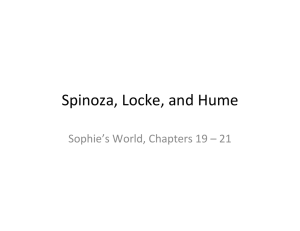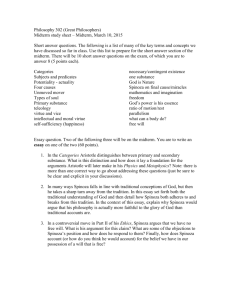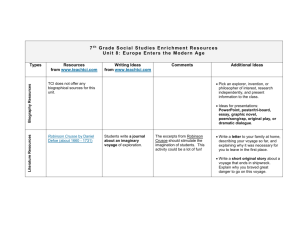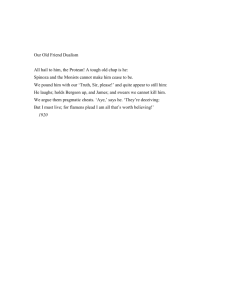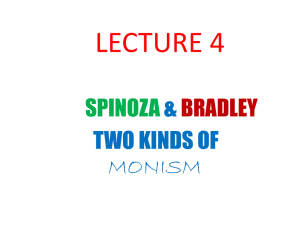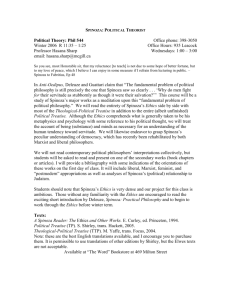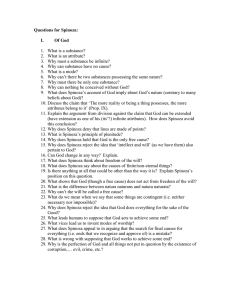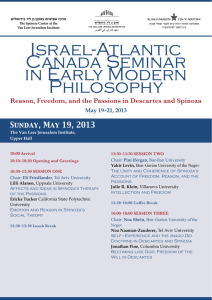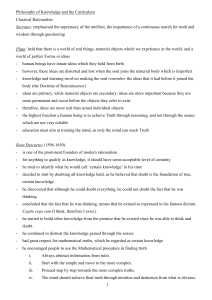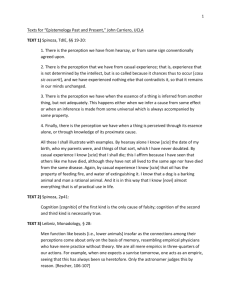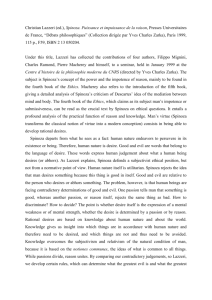Notes on Spinoza, TTP, chapter 16
advertisement
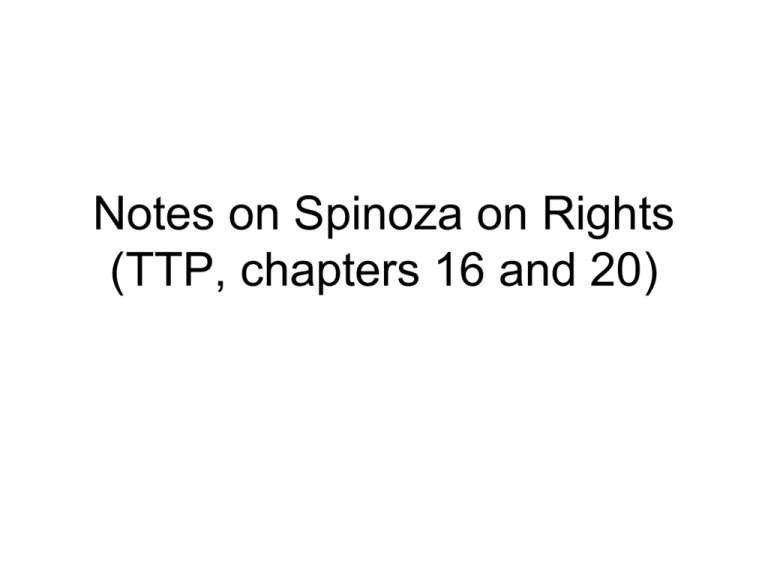
Notes on Spinoza on Rights (TTP, chapters 16 and 20) Outline of Chapter 16 Spinoza has three main objectives in this chapter: • To determine the natural right of individuals • To demonstrate the basis and right of the state (imperium) • To determine the civil right of citizens Natural Right • Spinoza begins with an ontological claim: “[S]ince the universal power of the whole o nature is nothing but the power of all individual things together, it follows each individual thing has the sovereign right to do everything that it can do, or the right of each thing extends so far as its determined power extends” (p. 195). • Therefore, the natural right of every human being “is determined not by sound reason but by desire and power” (p. 196). • Since human beings naturally seek social contracts for mutual interest, it follows that the validity of every social contract depends on whether it remains in our mutual interest, without which “the agreement fails and remains becomes void” (p. 199). The Basis and Right of the State • • Individual transfers of right form a community’s collective and sovereign right as a democracy, which Spinoza characterizes as “the most natural” form of state and “approaches most closely to the freedom nature bestows on every person” (p. 202). Concern about danger to individual freedom in a democracy is offset by Spinoza’s argument that “it can very rarely happen that sovereigns issue totally absurd commands. To protect their position and retain power, they are very much obliged to work for the common good and direct all things by the dictate of reason; for no one has maintained a violent government for long, as Seneca says. Furthermore, there is less reason in a democratic state to fear absurd proceedings. For it is almost impossible that the majority of a large assembly would agree on the same irrational decision. In addition, there is its foundation and purpose which is precisely…to avoid the follies of appetite and as much as possible to bring men within the limits of reason, so that they may dwell in peace and harmony. Without this foundation, the whole structure soon disintegrates” (pp. 200-1). Civil Right • Spinoza defines a citizen’s civil right as “the freedom of each person to conserve themselves in their own condition, which is determined by the edicts of the sovereign power and protected by its authority alone” (p. 202 • He goes on to discuss violations of civil right, the distinction between justice and injustice, allies and enemies, and the nature of treason. An Objection • Spinoza concludes chapter 16 by examining an objection to his argument: “What if the sovereign commands something which is against religion and the obedience which we have promised to God by an explicit agreement?” (p. 206) • Spinoza’s response The Limits of State Control “[N]o one can transfer to another person his natural right, or ability, to think freely and make his own judgments about any matter whatsoever, and cannot be compelled to do so. This is why a government which seek to control people’s minds is considered oppressive, and any sovereign power appears to harm its subjects an usurp their rights when it tries to tell them what they must accept as true and reject as false an what beliefs should inspire their devotion to God. For these things are within each person’s own right, which he cannot give up even were he to wish to do so” (p. 250). The True Purpose of the State “It very clearly follows from the fundamental principles of the state…that its ultimate purpose is not to dominate or control people by fear or subject them to the authority of another. On the contrary, its aim is to free everyone from fear so that they may live in security as far as possible, that is, so that they may retain, to the highest possible degree, their natural right to live and to act without harm to themselves or to others. It is not, I contend, the purpose of the state to turn people from rational beings into beasts or automata, but rather to allow their minds and bodies to develop in their own ways in security and enjoy the free use of reason, and not to participate in conflicts based on hatred, anger or deceit or in malicious disputes with each other. Therefore, the true purpose of the state is in fact freedom” (P. 252).
